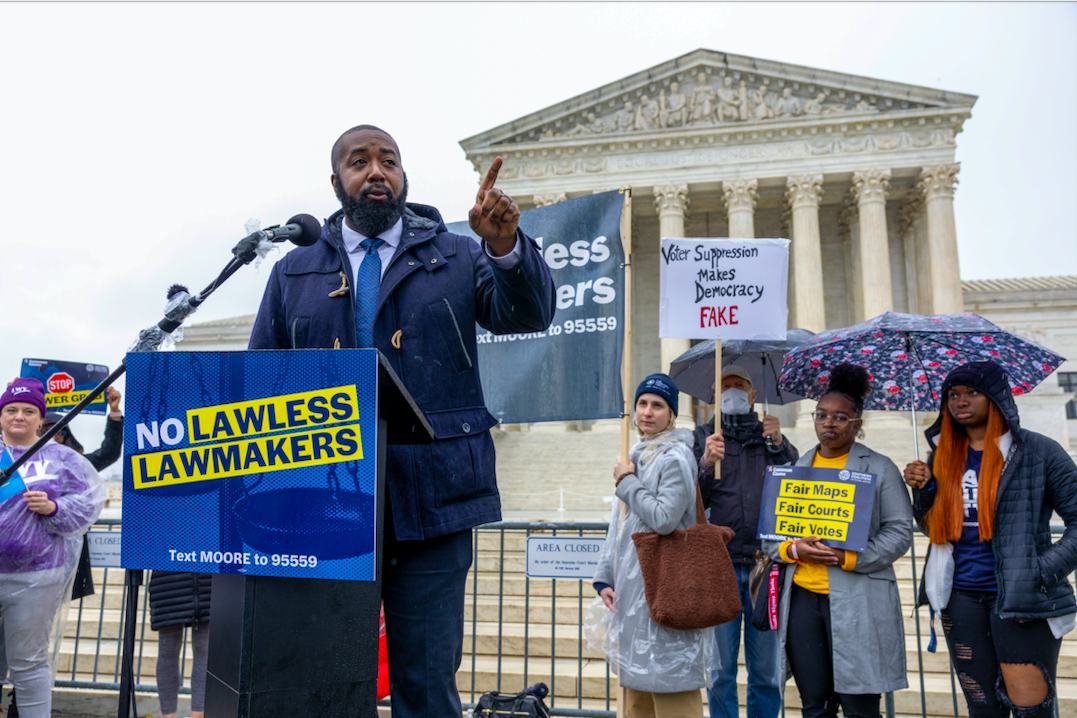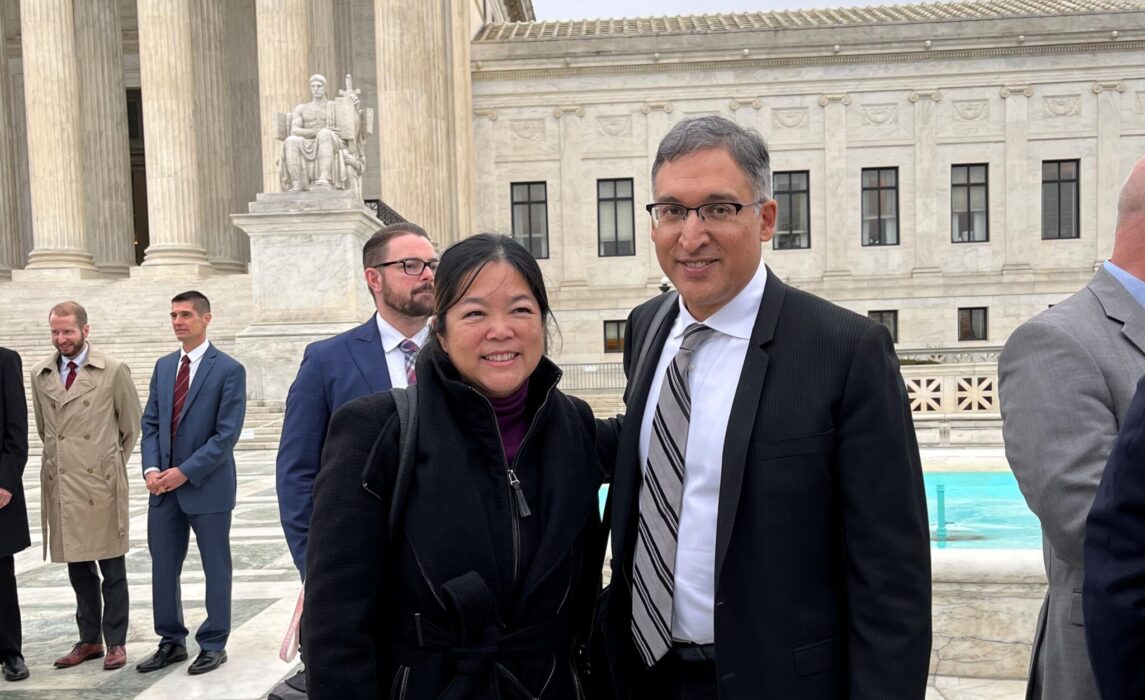The U.S. Supreme Court has decided Moore v. Harper, a major case with potential to erase 200 years of legal precedent and upend the American system of democracy.
A worst-case ruling in this case would have handed partisan state lawmakers the power to manipulate our elections and undermine our votes –state courts and governors could not have stopped them.
Background
Moore v. Harper came from a victory Common Cause, voting rights partners, and our legal team at Southern Coalition for Social Justice and Hogan Lovells won in North Carolina. We sued Tim Moore, the N.C. House Speaker, over voting maps rigged to benefit Republicans.
North Carolina lawmakers then appealed to the U.S. Supreme Court to try and claim state legislatures should have absolute power to craft voting maps and run federal elections, with no checks and balances from state courts.
They based their case on the ‘independent state legislature theory’ (ISLT), an extreme and dangerous idea pushed by a fringe group of politicians who want to overrule the voters and seize power over our government at any cost.
We call it the “Lawless Lawmakers Theory” – and it’s been decisively rejected by experts from across the political spectrum because it would open Pandora’s Box to unlimited gerrymandering, voter suppression, and election sabotage.
We defended fair maps and fair elections from this desperate power grab before the Supreme Court. A decision was made on June 27th from the Supreme Court. — you can read filings from Moore v. Harper and learn more here.

Mitchell Brown, senior voting rights counsel at Southern Coalition of Social Justice speaks in from of the U.S. Supreme Court. Photo via Getty Images.
What Was at Stake
If the Lawless Lawmakers Theory had succeeded, it would have allowed state legislators to eliminate checks and balances, manipulate our elections, and undermine your vote. Your state courts, governor, or others wouldn’t have been able to stop them.
A bad decision would’ve paved the way for:
- Widespread purges of voters from voting rolls
- Dramatic cuts to popular early voting and vote-by-mail options
- Discriminatory barriers to voting access
- Baseless challenges to fair election results
- Fewer protections against voter intimidation
- Rigged voting maps that dilute people’s voting power
- Elimination of independent redistricting commissions across the country
What was at stake in this case would have affected all of us: whether our elections should be about the will of the voters, or about how the political party in power manipulates election outcomes, not just in North Carolina, but in every state across the country.
If the Supreme Court had bought this radical attempt to declare open season on our voting rights, the results would have been catastrophic. Even though we won this fight, we need to be prepared to continue to be ready to rapidly scale up our work to protect our democracy and your right to vote.
That could mean organizing demonstrations against attempts to manipulate our elections, filing lawsuits against undemocratic policies, and relentless lobbying to protect voters on the state and national level, and so much more. It will be an enormous undertaking to save our democracy, but Common Cause is prepared to protect our right to vote.
CCNC Board Member Becky Harper, who lent her name to this case.
Get Involved
We’re counting on Common Cause supporters like you to help continue to make sure similar attempts to take away our checks and balances, our rights, and our democracy cannot succeed. Here’s how you can help:

Our attorney, Neal Katyal, with Common Cause's VP for Programs Kathay Feng (Image via Getty Images)
In the News
- The Supreme Court has an electoral ‘bomb’ on its hands. Will it defuse it before 2024? (Politico, 5/13/23)
- Common Cause’s Kathay Feng on Moore v. Harper (MSNBC, 12/12/22)
- This Case Should Never Have Made It to the Supreme Court (New York Times, 12/9/22)
- Supreme Court denies state legislatures the unchecked power to set election rules (POLITICO, 6/27/23
- Supreme Court rejects novel legislative theory but leaves a door open for 2024 election challenges(AP News, 6/28/23)
- (The Guardian, 6/28/23)
- ( CNN, 6/27/23)
- Neal Katyal on The Moore v. Harper Ruling (MSNBC, 6/27/23)